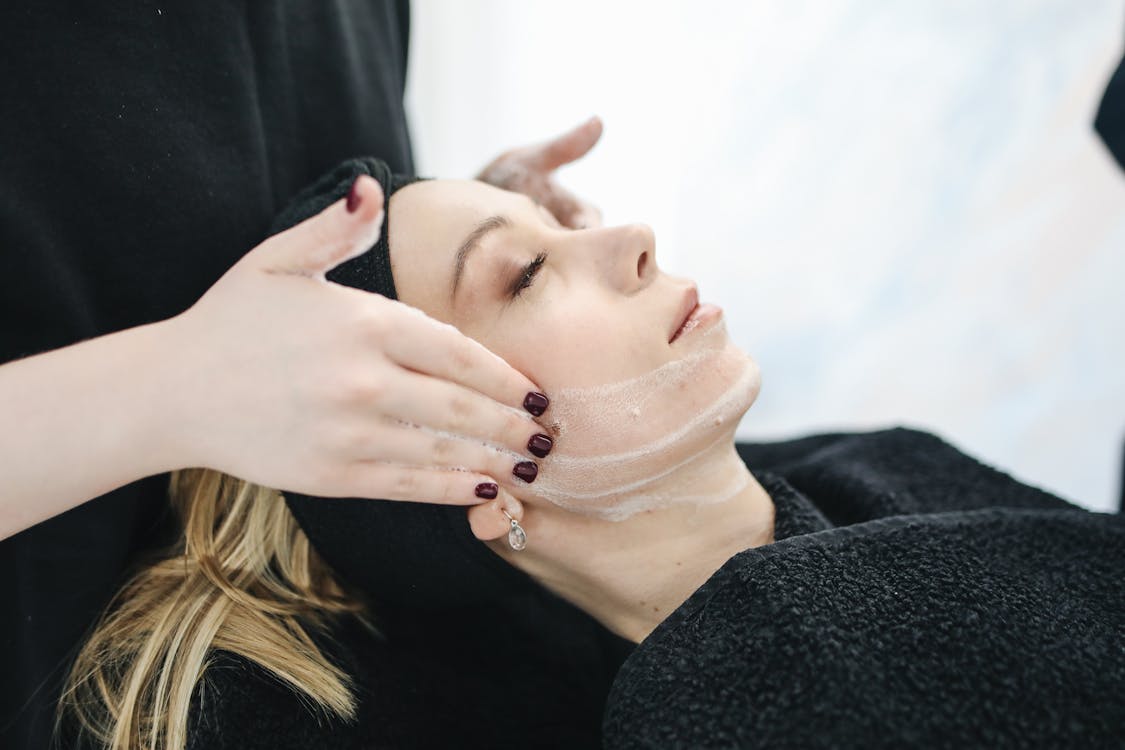Introduction
Taking care of your face is essential for maintaining healthy, glowing skin and preventing common issues such as acne, dryness, and premature aging. With the myriad of skincare products and routines available, it can be overwhelming to determine the best care for your face. In this comprehensive guide, we'll explore the fundamental principles of effective facial care, including skincare routines, key ingredients, lifestyle factors, and professional treatments, to help you achieve radiant and youthful-looking skin.
1. Cleansing:
Cleansing is the foundation of
any skincare routine as it removes dirt, oil, makeup, and impurities that
accumulate on the skin throughout the day. Choose a gentle facial cleanser that
suits your skin type, whether it's dry, oily, combination, or sensitive. Look
for cleansers with ingredients like glycerin, hyaluronic acid, or ceramides to
maintain skin hydration and barrier function. Avoid harsh or stripping
cleansers that can disrupt the skin's natural balance and cause irritation.
2. Exfoliation:
Exfoliation helps slough off
dead skin cells, unclog pores, and promote cell turnover for smoother, brighter
skin. Incorporate exfoliation into your skincare routine 2-3 times per week,
using either chemical or physical exfoliants. Chemical exfoliants like alpha
hydroxy acids (AHAs) and beta hydroxy acids (BHAs) gently dissolve dead skin
cells and improve skin texture. Physical exfoliants, such as facial scrubs or
cleansing brushes, physically remove dead skin cells through manual friction.
However, be cautious not to over-exfoliate, as it can lead to irritation and
inflammation.
3. Hydration:
Hydration is crucial for
maintaining skin health and vitality. Use a lightweight, non-comedogenic
moisturizer to hydrate and nourish your skin, regardless of your skin type.
Look for moisturizers containing ingredients like hyaluronic acid, glycerin, or
squalane to attract and retain moisture in the skin. Apply moisturizer twice
daily, after cleansing and exfoliating, to lock in hydration and prevent
moisture loss throughout the day. Additionally, consider using a hydrating
facial mist or serum for an extra boost of hydration, especially in dry or arid
climates.
4. Sun Protection:
Sun protection is essential for
preventing sun damage, premature aging, and skin cancer. Apply a broad-spectrum
sunscreen with SPF 30 or higher every morning, regardless of the weather or
season. Choose a sunscreen that offers protection against both UVA and UVB rays
and is suitable for your skin type. Opt for lightweight, non-greasy formulas
that won't clog pores or leave a white cast. Reapply sunscreen every 2 hours,
especially if you're outdoors or engaging in water-related activities.
Additionally, wear protective clothing, hats, and sunglasses to shield your
skin from harmful UV radiation.
5. Targeted Treatments:
Incorporate targeted treatments
into your skincare routine to address specific skin concerns such as acne,
hyperpigmentation, fine lines, or wrinkles. Choose products containing active
ingredients like retinoids, vitamin C, niacinamide, or salicylic acid to target
your individual skincare needs. Start with lower concentrations of active
ingredients and gradually increase their strength as your skin acclimates. Be
patient and consistent with your treatments, as it may take several weeks or
months to see visible results.
6. Healthy Lifestyle Habits:
In addition to skincare
products and routines, adopting healthy lifestyle habits can significantly
impact the health and appearance of your skin. Maintain a balanced diet rich in
fruits, vegetables, lean proteins, and healthy fats to nourish your skin from
the inside out. Stay hydrated by drinking plenty of water throughout the day to
support skin hydration and detoxification. Get an adequate amount of sleep each
night to allow your skin to repair and regenerate. Manage stress levels through
relaxation techniques such as meditation, yoga, or deep breathing exercises, as
stress can exacerbate skin conditions and accelerate aging.
7. Professional Treatments:
Consider incorporating
professional skincare treatments into your routine to enhance the effectiveness
of your homecare regimen. Schedule regular facials, chemical peels,
microdermabrasion, or laser treatments with a licensed esthetician or
dermatologist to address specific skin concerns and maintain skin health.
Professional treatments can provide deeper exfoliation, stimulate collagen
production, and target stubborn skin issues that may not respond to
over-the-counter products alone. Consult with a skincare professional to
determine the most suitable treatments for your skin type and concerns.
Conclusion:
Taking care of your face
involves a combination of proper skincare routines, quality skincare products,
healthy lifestyle habits, and professional treatments. By following a
personalized skincare regimen tailored to your skin type and concerns, you can
achieve clear, radiant, and youthful-looking skin. Remember to be patient and
consistent with your skincare efforts, as results may take time to manifest.
Listen to your skin's needs, adjust your routine as necessary, and prioritize
self-care to maintain a healthy and vibrant complexion for years to come.

